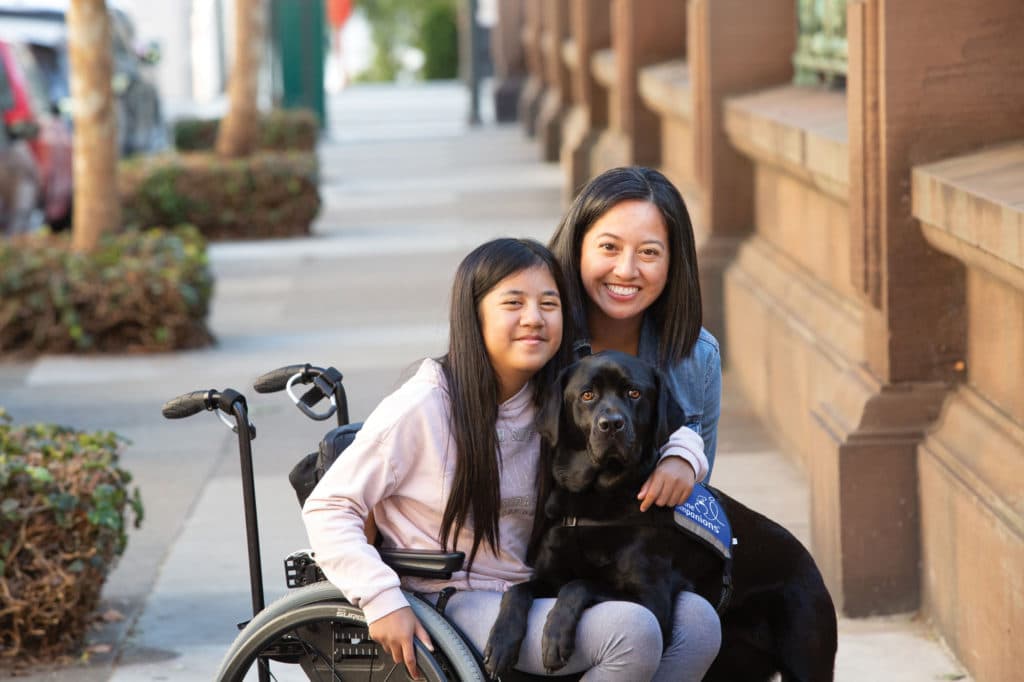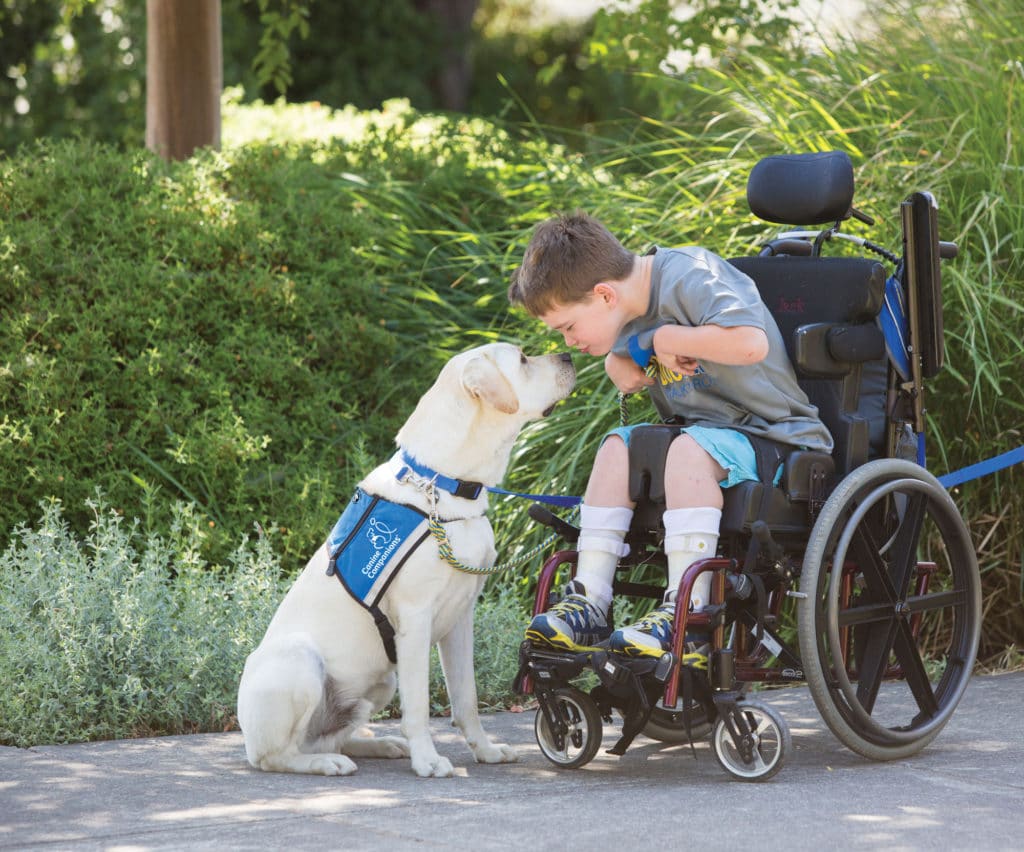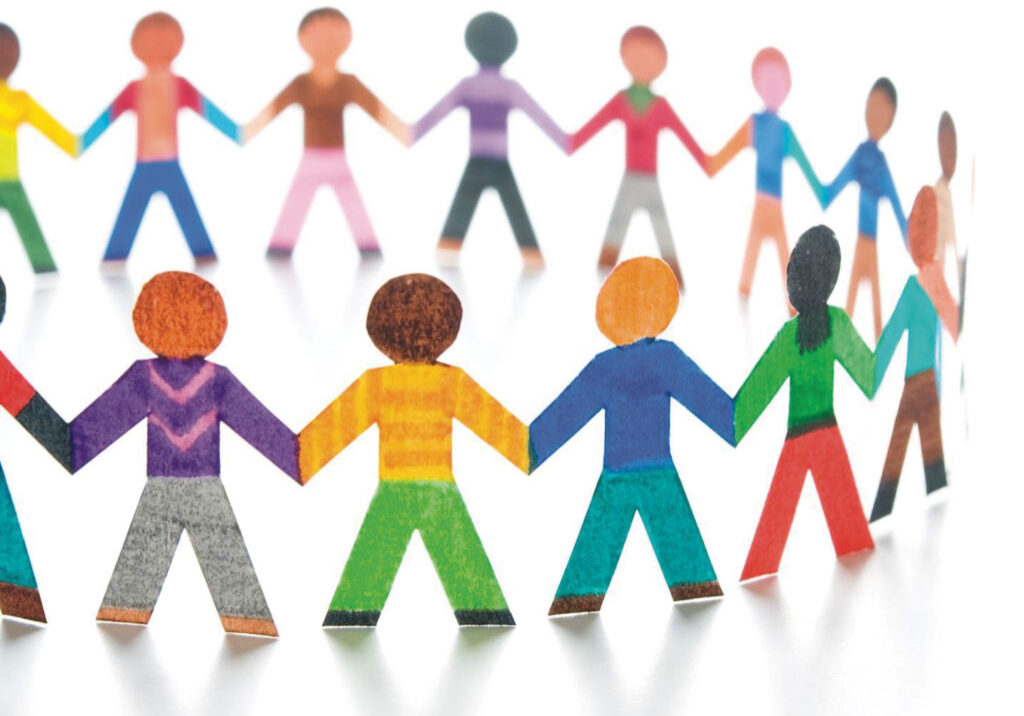One in four Americans live with a disability and national nonprofit Canine Companions is here to help.
Canine Companions is the largest national nonprofit provider of service dogs in the United States. Founded in 1975 and headquartered in Santa Rosa, CA, the organization matches expertly trained service dogs with adults, children and veterans with disabilities, completely free of charge.
Canine Companions service dogs assist people with a wide range of disabilities, including multiple sclerosis, cerebral palsy, spinal cord injury, stroke, hearing loss, developmental delay, veterans with post-traumatic stress disorder and more. These service dogs help clients overcome physical, psychological and social barriers, helping them lead lives with greater independence.
Volunteers raise Canine Companions puppies
Canine Companions breeds Labrador Retrievers, Golden Retrievers and crosses of the two breeds. The new puppies are raised by volunteer breeder caretakers who provide permanent homes for the breeder dogs and nurture the newborn puppies until they are about eight weeks old. Then the puppies are placed with volunteer puppy raisers for a year and a half, receiving lots of socialization, love, attention and experiential activities to prepare for their future.
Volunteer puppy raisers provide a safe home, take the puppies to obedience classes, serve up a healthy diet, provide socialization opportunities and give lots of love — vital to preparing the puppy for its future service life.
Professional training is the next step to becoming a Canine Companion
Now dogs are ready for their next step — professional training at one of Canine Companions’ six training centers across the country. Our dogs complete a six month training program where professional instructors teach them to respond to more than 40 commands, including retrieving items, pulling wheelchairs, interrupting nightmares and anxiety, opening and closing doors, alerting to important sounds, and much more.
After successfully completing professional training, the dogs enter Team Training, a two-week intensive program where recipients are matched with their new service dogs and both learn to work together as a team. Team Training culminates in an uplifting graduation ceremony, signaling the beginning of a new life together.
For some individuals, having a Canine Companion means returning to work, reducing medication or dependency on caregivers. Others gain confidence and security to leave their homes and maximize their potential in the community. For all Canine Companions graduates, one of the greatest rewards is the unconditional love and unique relationship they experience through partnership with a Canine Companions service dog.
Service dog teams increase independence
Since its founding, Canine Companions has matched more than 7,100 service dog teams and currently supports more than 2,600 active teams across the country.
Service dogs are partnered with adults and children with physical disabilities to assist with daily tasks and increase independence by reducing reliance on other people. A service dog can pull their partner in a manual wheelchair, pick up dropped items, push buttons for elevators or automatic doors, and even assist with business transactions by transferring money, receipts, and packages.
Social support and help with PTSD
Canine Companions service dogs also provide social support. For adults who are deaf of hard of hearing, service dogs alert them to important sounds in their environment by making physical contact such as nudging the leg or arm. Among the many sounds hearing dogs are trained to recognize and respond to are the sound of a doorbell, alarm clock, someone calling a name or a smoke alarm.
Canine Companions also provides service dogs to veterans with post-traumatic stress disorder (PTSD). These dogs are trained in tasks including anxiety and nightmare interruption, turning on lights, retrieving items and supporting their handler in crowded public situations that might provoke anxiety for individuals with PTSD.
Ways to support Canine Companions
Canine Companions does not charge for service dogs or the lifetime of ongoing support we provide. As a result, we depend on private funding through donations from individuals, corporations, foundations and community organizations. Our professional staff is supported by a national network of thousands of volunteers and donors, all committed to enhancing the independence for people with disabilities.
There are so many ways to support Canine Companions, from volunteering to help plan a fundraiser or give presentations about Canine Companions in your community, to raising a puppy, and everything in between. To learn more visit canine.org/volunteer.
Posted in: Special Needs
Comment Policy: All viewpoints are welcome, but comments should remain relevant. Personal attacks, profanity, and aggressive behavior are not allowed. No spam, advertising, or promoting of products/services. Please, only use your real name and limit the amount of links submitted in your comment.
You Might Also Like...
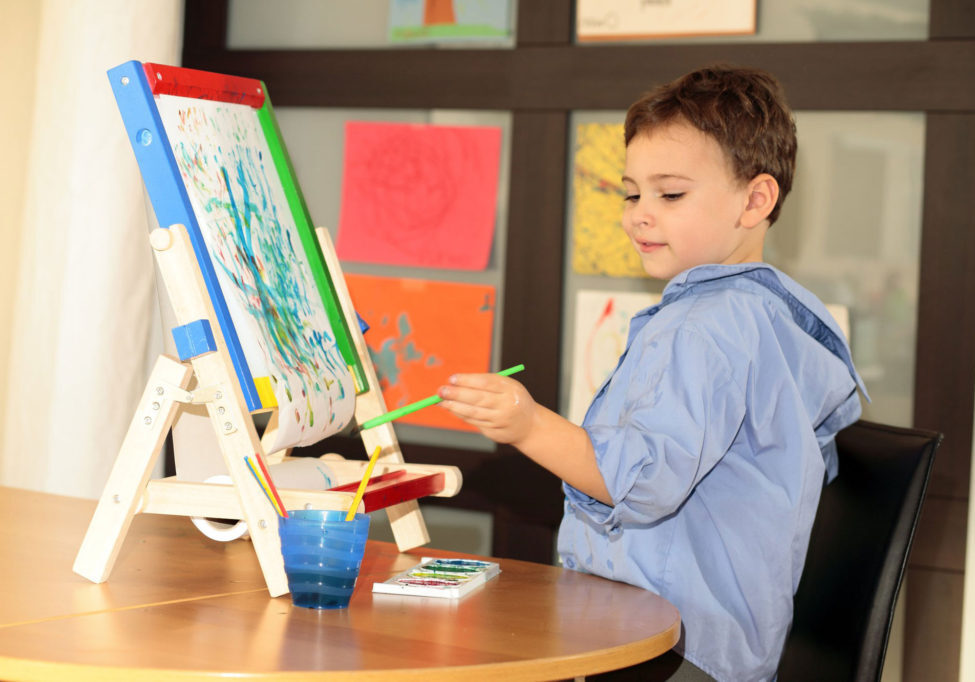
Art Therapy – A Healthy, Creative Outlet for Kids with Special Needs
Art has been used for decades as an outlet to provide relief from stress and anxiety for people of all ages and abilities. It has also been shown to improve […]
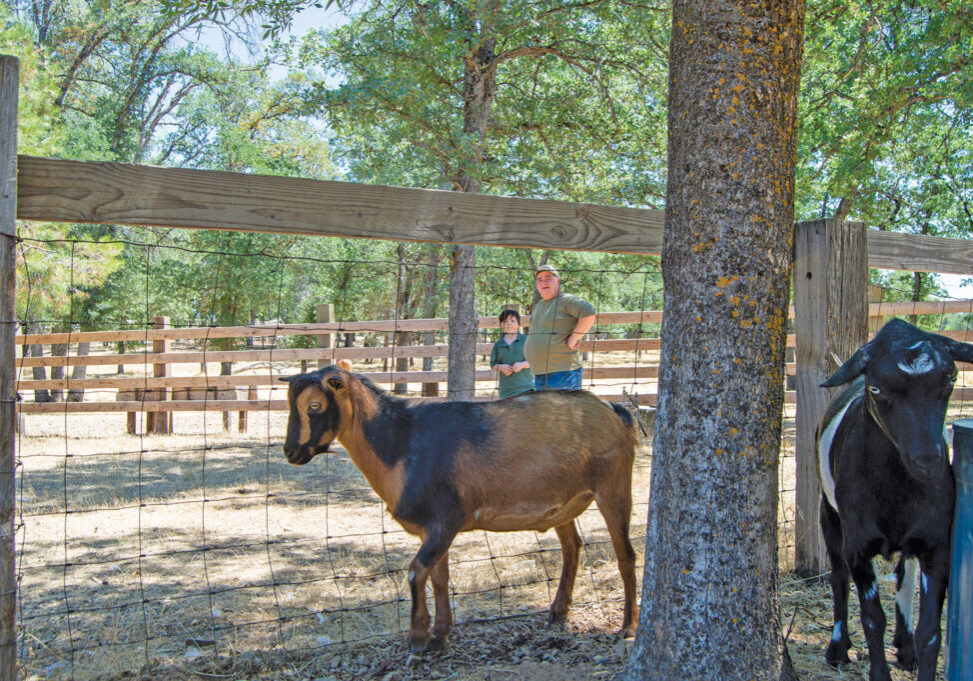
Children and Adults Find Healing and Connection at Roughout Ranch
“Everyone wants to be heard and to belong,” says Kathy Rutan-Sprague, Program Director at Roughout Ranch, nestled on 15 acres in the foothills just outside Redding. Here, children aged 2 […]
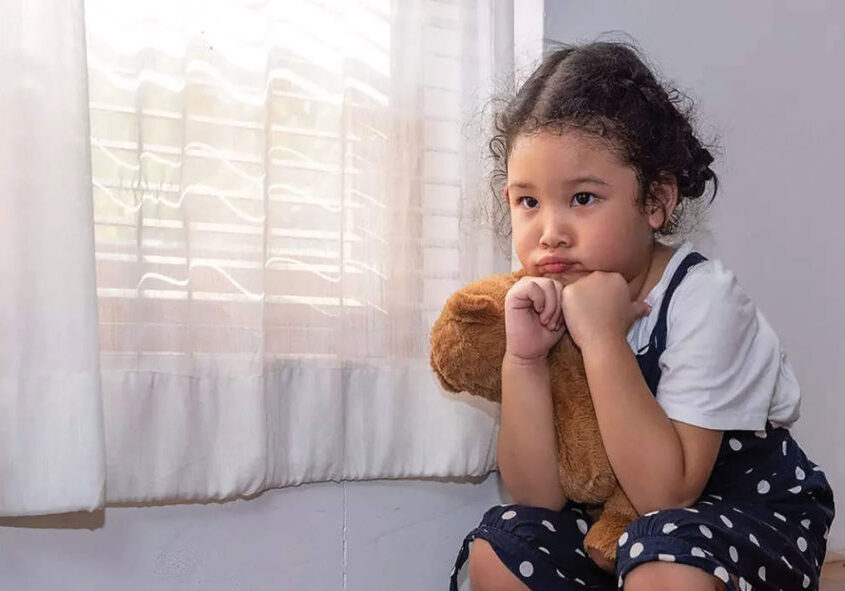
Mental Health Issues in Kids – Signs & How to Ask for Help
Roughly 7.7 million children in the United States live with at least one mental health disorder. Attention Deficit Hyperactivity Disorder (ADHD), Anxiety, Depression, and behavioral disorders such as Oppositional Defiant […]

Parental Advocacy and a Supportive School Environment Set the Stage for Success
When raising a child with special needs, advocacy becomes second nature. It starts with speaking up for your child’s needs at home and then expands to schools, doctor’s offices and […]


